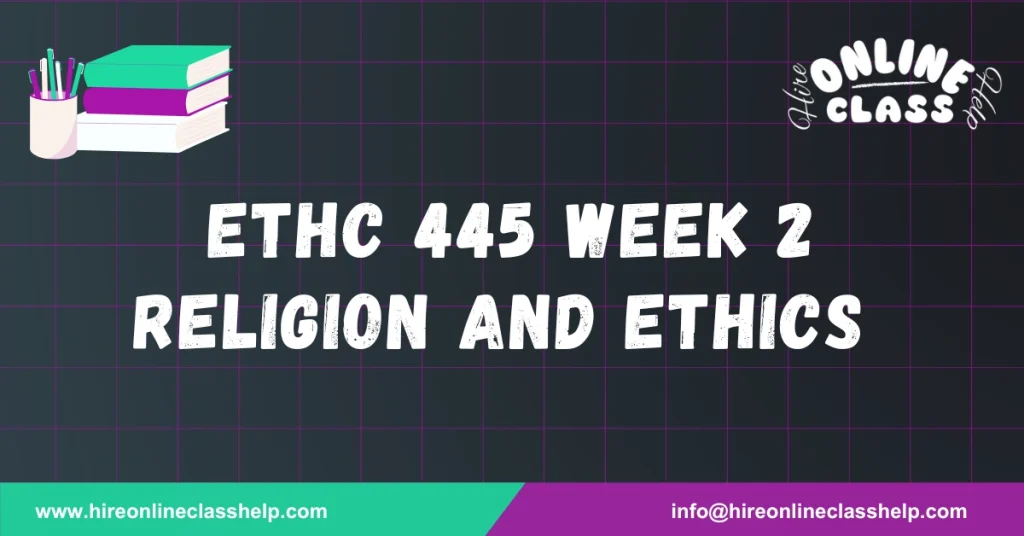






Name
Chamberlain University
ETHC-445 Principles of Ethics
Prof. Name
Date
This analysis will evaluate two distinct ethical dilemmas, each deeply intertwined with religious beliefs. The first scenario involves an 18-year-old lesbian woman whose sexual orientation contradicts her religious teachings. Her ethical dilemma revolves around whether she should inform her parents about her sexual orientation. The second scenario concerns a couple who lost a child to a rare disease. They are now sterile but wish to have another child through in vitro fertilization (IVF), a practice prohibited by their religion. The primary goal of this evaluation is to explore the intersection between religion and ethics in these scenarios and to determine both the ethical and unethical courses of action.
Different cultures and religions hold varying opinions on same-sex relationships. In many societies, homosexuality is condemned. In this scenario, an 18-year-old lesbian is contemplating whether to reveal her sexual orientation to her parents. According to the Christian faith, particularly in the Bible, homosexuality is forbidden. Romans 1:26-27 states that women who engage in unnatural relationships, just as men do, should face punishment (Gnuse, 2015). Ethical decisions are influenced by personal moral beliefs, and in many religious contexts, morality is derived from teachings of sacred texts and religious leaders (Rachels & Rachels, 2019). Despite being a lesbian, the woman likely still values her religious upbringing, creating an internal conflict between her sexual identity and her faith.
The ethical choice for the woman would be to be honest with her parents about her sexual orientation. Her willingness to consider this step indicates that it has been troubling her, and revealing the truth might bring her peace. The unethical path would involve lying to herself and her family by pretending to be straight. Different ethical perspectives would approach her dilemma differently. Emotivists might advise her either to embrace her sexual identity or to remain faithful to her religious beliefs based on their personal convictions. Natural law ethicists, on the other hand, might encourage her to seek guidance from God and her parents, as everything is believed to have a purpose. From the standpoint of divine command ethics, she has a moral duty to follow God’s commands, which would mean adhering to her religious teachings (Rachels & Rachels, 2019). Ultimately, the decision lies with the woman, but it is probable that she will choose honesty for her well-being.
In the case of Joe and Mary, they wish to have another child after losing their first one to a rare disease. However, they are sterile and their religion, Catholicism, forbids IVF, as it is considered immoral due to the unnatural method of conception. The Catholic Church teaches that life should be conceived through natural intercourse, and any deviation from this is seen as immoral. Catholicism places significant value on human life, opposes abortion, and believes pregnancy should be protected from the moment of conception. Moreover, Catholics are encouraged to have children as a fulfillment of God’s commandment (Sallam & Sallam, 2016). Joe and Mary face the difficult choice of either abiding by their religious beliefs or pursuing IVF to fulfill their desire for a child.
Ethically, Joe and Mary should follow their personal values, which include their deep desire to have children. This might mean making an exception to their religious beliefs and pursuing IVF. The unethical path would be to suppress their desires and allow the Church to dictate how they should approach parenthood. A divine command ethicist would argue that IVF should be avoided because it goes against God’s will, suggesting that if God wanted them to have another child, He would bless them with one naturally. Emotivists, based on their personal beliefs, might either support the couple’s decision to undergo IVF or urge them to stay true to their Catholic faith. Natural law ethicists would likely recommend prayer and reflection, acknowledging that science and medicine exist to assist people in cases like this, implying that IVF could be an acceptable path (Rachels & Rachels, 2019). Ultimately, the couple must decide what feels right for them, balancing their religious convictions with their desire for another child.
In both scenarios, the ultimate ethical decision comes down to what feels right for the individuals involved. While religious teachings often provide a framework for moral decision-making, personal ethics and values play a significant role. Making a decision that conflicts with religious doctrine does not necessarily equate to being morally wrong. Instead, ethical decisions should be guided by a balance of personal values, religious beliefs, and what feels most authentic and right to the individual.
Gnuse, R. K. (2015, May 1). Seven Gay Texts: Biblical Passages Used to Condemn Homosexuality. Biblical Theology Bulletin, 45(2), 68–87. https://doi.org/10.1177/0146107915577097
Rachels, J., & Rachels, S. (2019). The Elements of Moral Philosophy (9th ed.). McGraw-Hill Education.
Sallam, H. N., & Sallam, N. H. (2016). Religious aspects of assisted reproduction. Facts, Views & Vision in ObGyn, 8(1), 33–48. https://www.ncbi.nlm.nih.gov/pmc/articles/PMC5096425/
| Scenario | Ethical Path | Unethical Path |
|---|---|---|
| Lesbian Woman | Be honest with parents about her sexual orientation. | Lie to herself and her parents, pretending to be straight. |
| IVF Couple (Joe and Mary) | Follow personal values and pursue IVF to have a child. | Let religious doctrines dictate their reproductive choices. |